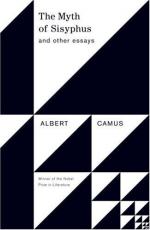
|
| Name: _________________________ | Period: ___________________ |
This test consists of 15 multiple choice questions and 5 short answer questions.
Multiple Choice Questions
1. For whose victory must we hope?
(a) The gods'.
(b) The proleteriats'.
(c) The artists'.
(d) The politicians'.
2. What form of travel did Camus use to reach Tipasa?
(a) Local taxi.
(b) Bus.
(c) Train.
(d) Car.
3. What comment does Camus make about the word 'sin'?
(a) That it is a word used to make people fearful, thus easy to control.
(b) It is something we all should be more aware of.
(c) That it refers to an illusion.
(d) That he has never really understood it.
4. What is the alternative title for The Minotaur?
(a) A Setup in Oran.
(b) The Stop in Oran.
(c) A Stop in Oran.
(d) The Stoop in Oran.
5. What does Camus say is foreign to us today?
(a) The simple nobility of Ulysses.
(b) Compassion.
(c) The guiles and temptations of Calypso.
(d) A sense of fair play.
6. What does the word 'limpid' mean?
(a) Limp and floppy.
(b) Clear or transparent.
(c) Ambient.
(d) A shade of pink.
7. When Camus writes '. . . like red beasts', he is using which literary device?
(a) Simile.
(b) Personification.
(c) Alliteration.
(d) Idiom.
8. What is the role of Nemesis?
(a) To restore memory of past sins.
(b) To claim revenge.
(c) To bring soothing sleep.
(d) To punish those who exceed their limits.
9. In this essay, the Minotaur is used to represent which human experience?
(a) Power.
(b) Bewilderment.
(c) Boredom.
(d) Passion.
10. Where is history now to be found?
(a) In archival collections held by governments.
(b) In libraries.
(c) In books.
(d) In the streets.
11. Where can Moorish cafes be found?
(a) Behind the mosque.
(b) In the Kasbah.
(c) On the waterfront.
(d) Under the clock tower.
12. What significant thing concerning Socrates does Camus refer to?
(a) He said that to the gods, humans are like flies to wanton boys.
(b) He said that what he did not know he did not claim to know.
(c) He said that the unexamined life is not worth living.
(d) He said that money is the root of all evil.
13. What phenomenon has seemed continuous since Camus' last departure from Algiers?
(a) Terrorism.
(b) Oppression.
(c) Drought.
(d) Rain.
14. How does Camus classify Oran?
(a) As a center of industry.
(b) As a desert.
(c) As a center of culture.
(d) As an oasis.
15. What word best describes Camus' attitude to Oran's shops?
(a) Scathing.
(b) Tolerating.
(c) Admiring.
(d) Praising.
Short Answer Questions
1. What do Arabs sell for five sous?
2. What did Goethe call for when on his deathbed?
3. What kind of role is that of the witness?
4. What does Camus believe is a necessity?
5. How might the mood of the first three paragraphs of Return to Tipasa be described?
|
This section contains 432 words (approx. 2 pages at 300 words per page) |

|




